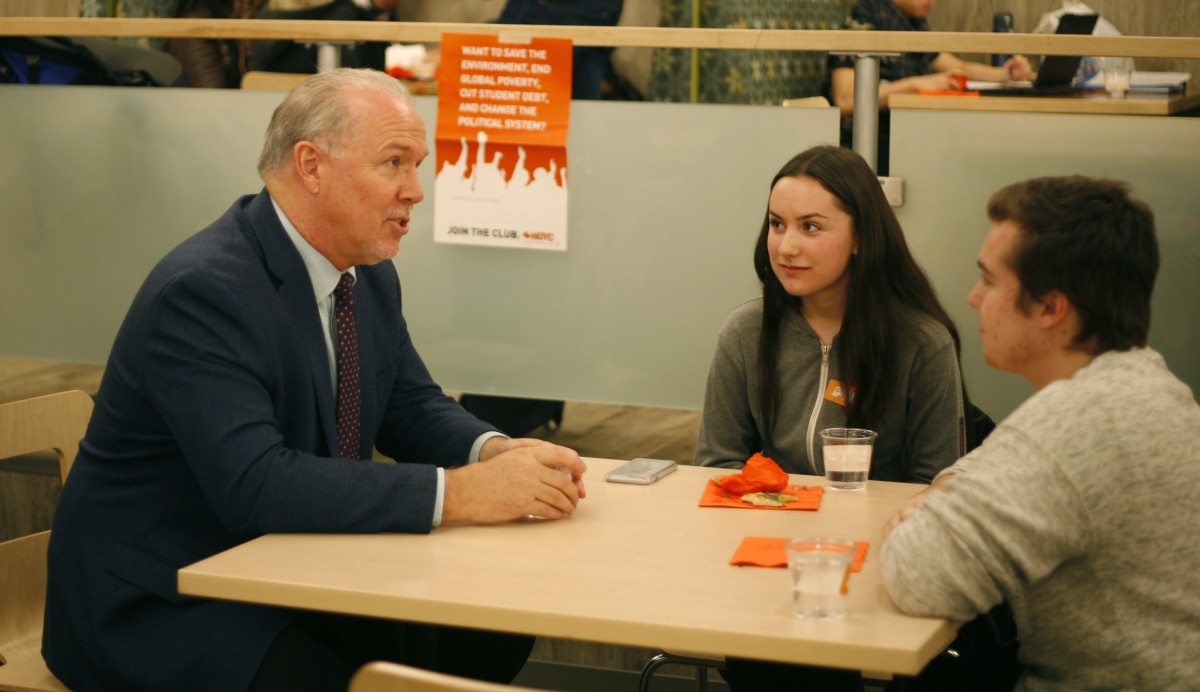The Premier’s extraordinarily high popularity from his government’s response to the pandemic will likely earn him a majority for the next four years

When British Columbians head to the polls for the general election on Oct. 24, the B.C. New Democratic Party (NDP), led by John Horgan, will likely win a commanding majority victory.
According to an Insights West opinion poll from September 22-23, the NDP hold a 13-point lead over the opposition BC Liberals, with 42 per cent of respondents saying they would cast a ballot for the New Democrats. The same polling shows a mere 29 per cent of respondents would support the BC Liberals, led by Andrew Wilkinson. The BC Greens, who just elected their new leader, Sonia Furstenau, currently have the support of 16 per cent of eligible electors.
Further, in a recent survey of prospective voters conducted in early September by Angus Reid, 83 per cent of respondents say the provincial government has done a ‘good job’ managing the COVID-19 pandemic.
Public perceptions of Horgan’s government have been challenged greatly over the past year, and his government has withstood those challenges. It helps that voters know what they are getting into with Horgan’s premiership as well.
Seeing an opening to get more power and using it is, politically, as natural as breathing.
In the face of difficult circumstances, voters often stay with what they know and who has been in power. It’s a good opportunity for both Horgan and the public: he gets his renewed mandate, and the public gets some tested and popular leadership for another four years.
Take, for example, the New Brunswick general election in early September — the first provincial general election held during the COVID-19 pandemic. There, incumbent Progressive Conservative premier Blaine Higgs sent voters to the polls after a brief, four-week campaign and turned his minority government into a majority. The people of New Brunswick rewarded Higgs for successfully managing the pandemic there, and stood with who they knew. The turnout in that election was 66 per cent. So let’s stop toying with the idea that voters won’t turnout for a general election during a pandemic.
I bet Horgan was keenly watching the results of that race and he should, if he’s smart, take inspiration from it. Millions of Americans will still head to the polls in a few weeks for the presidential elections too, even with increased vote-by-mail operations there. If they can vote, we can as well.
An election must be called under British Columbia law by October 16, 2021 anyways. Why wait? Why allow the current popularity even the potential to be fleeting?
Calling an election isn’t evil. Politics is about power. Horgan has some power, and he has the support. Seeing an opening to get more power and using it is, politically, as natural as breathing. The politicians who take advantage of the circumstances open to them instead of bending are the ones re-elected.
Liberal party leader Andrew Wilkinson has not led his party through an election before. He has yet to inspire British Columbians, myself included, why he deserves a chance to form government over Horgan. It doesn’t help Wilkinson’s cause that he has been largely denied public attention due to the lack of in-person legislature sittings (or virtual sittings) and the almost daily government briefings on the COVID-19 response capturing the public’s attention.
British Columbia has changed a lot, too. The days when the BC Liberal party under the leadership of Gordon Campbell guided the party to three consecutive majority governments are gone. Horgan’s popularity could —and likely will — fall from its extravagant heights. But his government currently holds the support of the public, and they should use it to strengthen their mandate. I’ve yet to be particularly inspired by his government’s tenure, but others clearly have been, and it makes a great deal of sense to capitalize on it.






